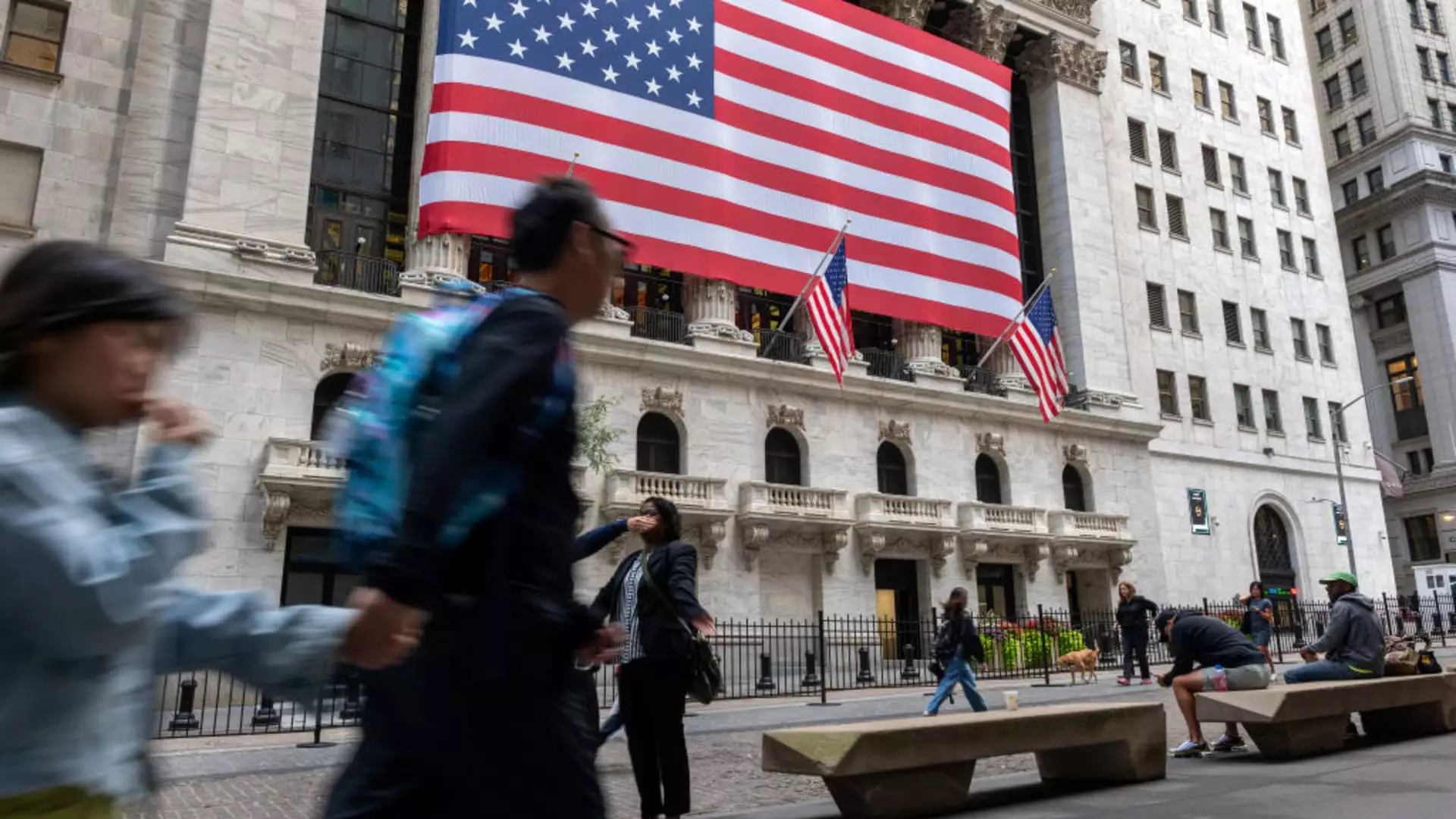The upcoming U.S. presidential election introduces a unique layer of uncertainty in the economic landscape, drawing attention from both analysts and investors. The stakes are high as the electoral race between Donald Trump and Vice President Kamala Harris could dramatically shift investment trends within U.S. equity markets. Barclays, a prominent investment bank, asserts that stocks spanning various sectors may experience differential impacts based on the outcome of this election, prompting investors to reassess their current holdings and future strategies.
Analyst Terence Malone from Barclays used recent insights to underscore the unpredictability of the current political climate. In his recommendations, he paints a picture where a divided government—characterized by a split Congress—could be the most likely outcome, leading to significant implications for economic policy. This scenario would mean that whichever candidate takes the executive reins, they may face obstacles in fully realizing their agenda. The election’s polarized nature manifests in the substantial differences between Trump’s and Harris’s economic proposals, which investors must carefully consider.
Should Trump regain the presidency, analysts predict that an aggressive stance on international trade could be re-established, with stark implications for global markets. His historical advocacy for high tariffs, particularly against China, reflects a potential re-ignition of a global trade war. Malone posits that Trump’s policies could impose a 10% tariff across all U.S. imports and even higher tariffs on targeted countries. Such measures could have far-reaching effects on companies dependent on global supply chains, leading investors to reconsider holdings in related sectors.
Conversely, a Harris victory is expected to facilitate a more moderate political environment where changes may occur at a slower pace. Given her status as a member of the Democratic party, known for supporting healthcare and social welfare initiatives, the expectation is that major policy shifts may struggle more easily in a politically divided Congress.
Key Beneficiaries Under a Trump Presidency
With the prospect of a Trump re-election, certain stocks demonstrate an enhanced likelihood of upward momentum. The most noteworthy among them is MicroStrategy, recognized for its significant investment in Bitcoin. As a self-proclaimed advocate for cryptocurrency, Trump’s policies could prove favorable for MicroStrategy, which has become emblematic of the burgeoning crypto market. According to Barclays, shares of the company are already experiencing remarkable growth, amidst promising forecasts in a Trump-led administration. The rising price of Bitcoin may lead to further increases in MicroStrategy’s stock, potentially positioning it as a prime investment.
Another major player highlighted by Barclays is L3Harris Technologies, a key defense contractor. The anticipated rise in military spending linked to Trump’s foreign policy approach can bolster L3Harris’s stock prospects as the company stands to benefit from increased government contracts. Such markets are typically insulated from broader economic slowdowns, making L3Harris an attractive consideration for investors eyeing stability amid volatility.
UnitedHealth Group, as the largest private insurer in the U.S., could also see gains under Trump’s potential presidency, particularly with a more lenient regulatory landscape on the horizon. With a strong performance and positive earnings history, the company seems well-poised to attract investments in a changing policy climate.
On the other side of the political spectrum lies a group of stocks that could benefit from a potential Harris presidency. Chief among these is Centene, a healthcare entity with deep ties to Medicaid services. Analysts suggest that under Harris, who supports extending and reinforcing healthcare policies like the Affordable Care Act, Centene may see substantial growth in the coming year, particularly with the impending expiration of significant subsidies.
Retailers are also a focal point in a Harris scenario, evidenced by the fortunes of Burlington Stores. With budgets tightening for consumers, discount retailers have garnered attention, and Harris’s policies may favor further consumer spending in this segment. Burlington’s recent earnings illustrate a boom in demand, making the stock a compelling proposition for investors seeking growth amid economic uncertainty.
Additionally, homebuilders like D.R. Horton align with Harris’s agenda of housing expansions. A commitment to building new homes presents an opportunity in a market that consistently struggles with inventory shortages, and investors grasping this potential could find both stability and growth here.
The dynamics of the upcoming U.S. election are set to shape investment decisions on a wide scale, as companies position themselves to leverage the distinct policy agendas of either Trump or Harris. With an understanding of potential shifts across sectors, investors are urged to examine their portfolios with a keen eye on the political landscape. As the electoral race intensifies, the evolving narratives will guide strategic decisions and highlight sectors ripe for opportunity, reflecting broader themes of risk, uncertainty, and potential reward.

